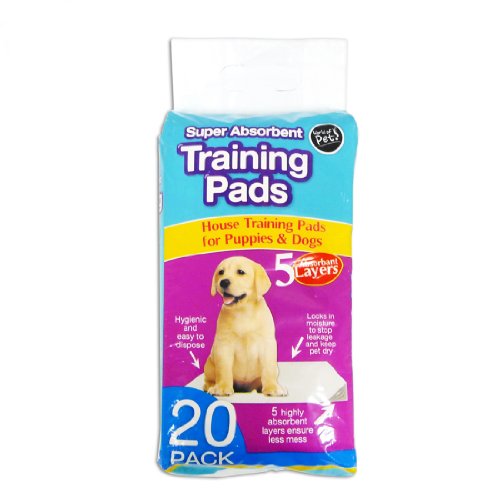
Basic puppy training is essential for all puppies and dogs to develop good manners and basic control in relation to barking, chewing and biting. A well mannered dog will greet and behave politely around other people and dogs, come back when called, accept its collar nicely, obey commands such as ‘sit’ and allow itself to be groomed and examined by its owner and vet.
Other important aspects of puppy training include:
- Puppy crate training
- Toilet training
- Teaching it to socialize with other animals and people
- Accepting a collar and lead
- Bathing and grooming
Whichever approach is taken, owners must remember to stay calm at all times and be totally consistent with their training techniques in order to get the best results. Owners that try to rush things will easily become frustrated and confuse their pup. Other very important training tips include:
- Short but frequent training sessions – puppies have a very short attention span so to prevent them from becoming bored and uninterested owners should train them in short spells on a regular basis.
- Fun and interesting training – owners should incorporate rewards, games, toys and treats into training sessions for encouragement.
- Cheerful tones – puppies respond better to cheerful voice tones, rather than to threatening orders.
Dog Training Classes
Dog training classes will help owners achieve the most out of their pup. These classes are often fun and informative and offer an excellent opportunity for puppies to meet other dogs and people, which will help them to socialise and interact with its own kind and with strangers. Puppies will also learn to listen to their owners while being distracted by their strange surroundings.
Owners can book classes as soon as their puppy’s vaccinations are complete. To help decide which dog training club to enrol at, owners should attend a session without their dog and decide whether this is the right environment for them and their puppy. Close attention should be paid to the instructors to ensure they are friendly, catering to the needs of the whole group, and providing a controlled and safe environment for the dogs.
Socialisation
Socialising is an important element in puppy training. Teaching a puppy to interact with other animals and different people will improve its confidence when faced with a variety of strange situations.
Between the age of 8 and 12 weeks, owners should introduce their pup to other members of the family, neighbours, close friends and any other pets they may have, and let their puppy experience as many different stimuli as possible. However, puppies can easily become overwhelmed, so owners should ensure socialising sessions are kept small.
Learning good manners and how to socialise with other dogs can also be taught by attending dog training classes.
Buy Puppy Training Products




















